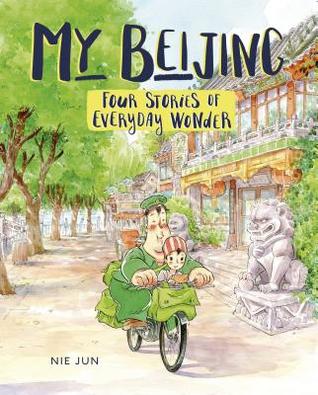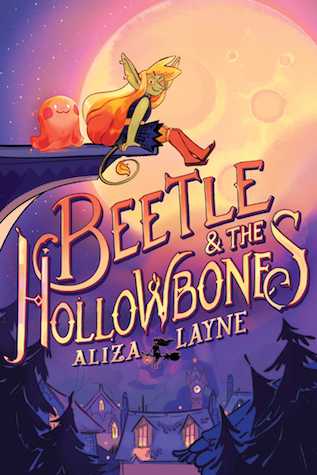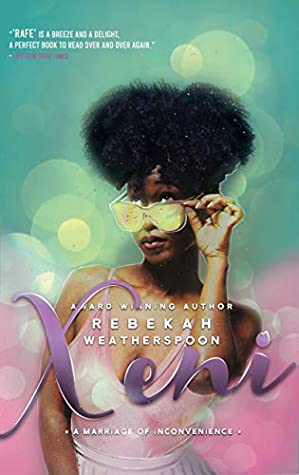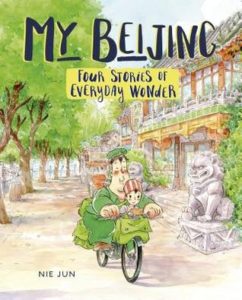
TL;W[on’t]R[read the review]: If you’re not into whimsy of any sort, steer clear, but if you like the whimsical tempered with more than a dash of the everyday, try to find this asap.
Summary [courtesy of Goodreads]: Yu’er and her grandpa live in a small neighborhood in Beijing–and it’s full of big personalities. There’s a story around every corner, and each day has a hint of magic. In one tale, Yu’er wants to swim in the Special Olympics, a sports competition for people with disabilities. But she and her grandpa don’t have a pool! Their trick to help Yu’er practice wows the whole neighborhood. In another story, a friend takes Yu’er to a wild place full of musical insects. Later, Yu’er hears a special story about her grandparents. And in the final story, Yu’er and her grandpa show a cranky painter the sweet side of life.
This was such an unexpected discovery–it’s the sweetest little series of vignettes about a young girl and her grandfather in a small neighborhood in Beijing. It’s comedic and silly, but it’s also wholesome and kind. Most importantly, it’s stuffed full of fantastical moments that transcend reality and make for even sweeter ‘happily ever after’ conclusions. Basically, it’s thoroughly enchanting.
Looking at the art style, “enchanting” isn’t necessarily a word I’d immediately think of: it’s full of cartoonish people whose more embodied qualities (they often have visible butt cracks, for instance) are cut by the more ethereal watercolors that Nie Jun uses in his panels. It’s a striking mix of tones, to me, but it works very well here. The same goes for the mini-plots of the vignettes: depressingly quotidian things (like the discrimination in part 1 that the young, disabled main character Yu’er faces in trying to train for the Special Olympics in swimming) mixes with the thoughtful and caring (her grandfather develops a rig so she can practice aerially) and then culminates with the transcendently fantastical (Yu’er flies around her neighborhood, her friends following below).
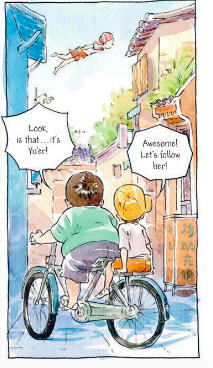
All of the vignettes have this awesome narrative blend of slightly dark and gorgeously light, and it made the reading experience even better than I’d expected. Yes, the book deals with ableism and discrimination, but its main focus is on hope and developing a truly caring, sustainable community.
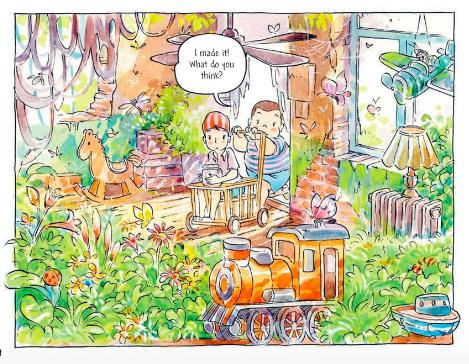
In the end, this book imagines a world where the magical blends seamlessly into the everyday, and everyone benefits because of it. Communities get stronger, little girls get wiser, and sweet grandpas meet their soulmates through time travelling letters.


